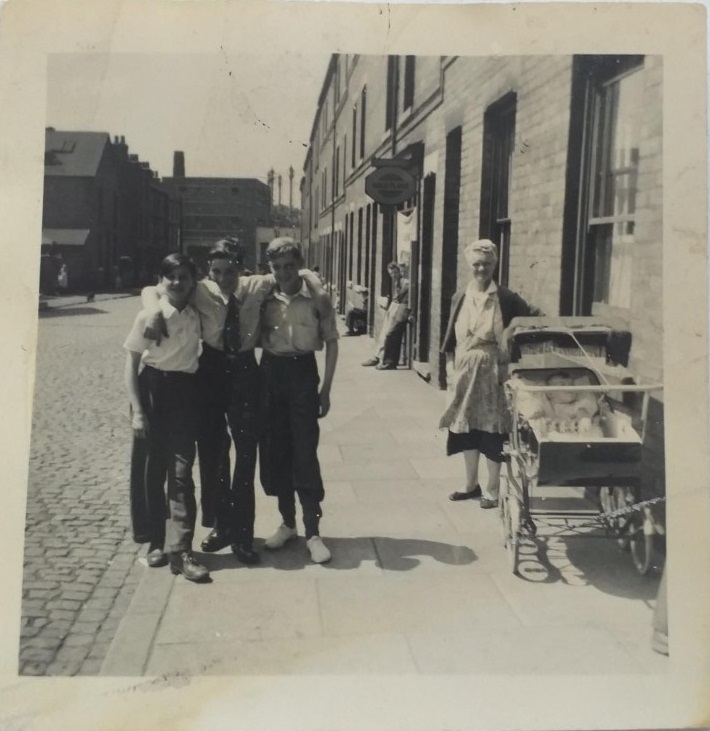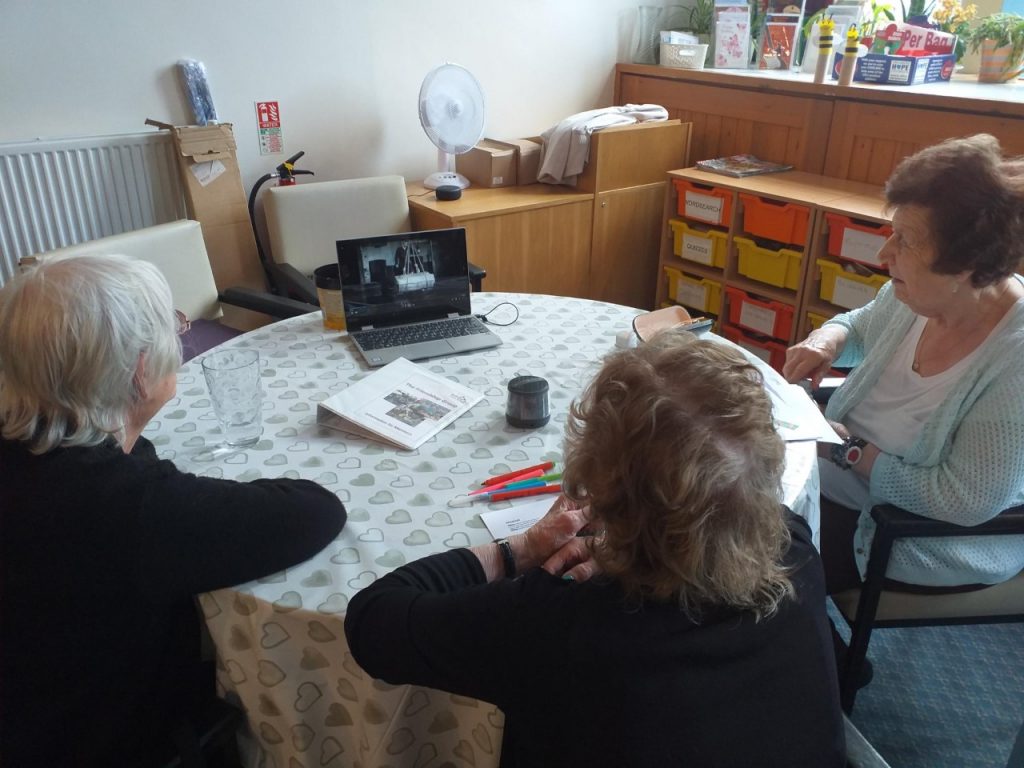
This is the second of three blogs originally published on the City Arts website for Words for Wisdom, a project which aims to bring older and young people together through literature. During my commission we explored Alan Sillitoe’s Saturday Night and Sunday Morning, which is why we had to host some of the sessions in Radford.
When thinking about possible locations to host writing workshops for the Words of Wisdom project, Radford was an absolute must. This was the setting for Alan Sillitoe’s debut novel, Saturday Night and Sunday Morning. Karel Reisz’s 1960 film adaptation staring Albert Finney as Arthur Seaton would feature the family home of 5 Beaconsfield Terrace, with neighbours and family appearing as extras.
Born in 1928, Sillitoe grew up in abject poverty and squalor. The family lived an itinerant existence, moved on as the area underwent slum clearances. On one occasion the family of six occupied a single room in a building. They weren’t the only ones. Always on the brink of starvation, Sillitoe’s mother was forced into prostitution to help feed the family. “We were in a class of our own,” observed Sillitoe’s brother Michael “it was impossible to fall any lower.”
Sillitoe failed his eleven plus and ended up in Radford Boulevard Senior Boys’ School, leaving without qualifications. Like everyone else in the area, including his father, he ended up doing a stint at Raleigh. Given Sillitoe’s personal circumstances it’s little wonder he has Arthur Seaton declare “I’m out for is a good time – all the rest is propaganda”. Yet despite these awful conditions, Sillitoe avoids ‘misery lit’ in his writing. Instead we find a defiant individualism in his characters, epitomised by Seaton’s personal mantra of “don’t let the bastards grind you down”.
I found a similar attitude in my sessions at Radford Care Group where four women aged between 70 – 80 shared stories that were Seatonesque in their cunning and charisma. One woman, Brenda, grew up on Salisbury Street, a few doors down from the Sillitoe family, and brought in a photo of Sillitoe’s mother Sabina on the street. You can see the Raleigh factory in the distance. This was particularly poignant as Brenda explained her ex husband burned all of her photographs except a treasured few. She also shared a letter from Brian Sillitoe, who kept in contact over the years.

One of Brenda’s personal photographs which she kindly shared with us.
When we discussed dialect in the novel, Brenda introduced me to words from her childhood like ‘chumping’ – which is where you collect wood for a bonfire stack. Streets would have competitions to see who could make the biggest bonfire, meaning she would sneak out at night and steal debris from her neighbour’s stack. Presumably they were doing similar, so there was no point feeling guilty. Another favourite word was ‘guzunder’ as in ‘it goes under’ referring to a bed pan that goes under the sheets.
When I turned up for our sessions the group were usually intensely working on a ‘word search’, whereby they had to search through a grid of letters to find hidden words. “Keeps me brain working, duckeh” one of them explained. So, when we met up next, I created a word search that included local dialect and phrases from Saturday Night and Sunday Morning, such as: White Horse, Gin and Orange, Blackberryin, Notnum.
The group were really grateful for the sessions because it helped them remember things they’d long since forgotten, such as the US Army billeted at Wollaton Park during World War II. Some of the stories I was told would make Arthur Seaton blush! Although Brenda was too young for a romantic liaison, it didn’t stop her from taking advantage of the ‘Yanks’. Instead, she promised soldiers a date with her sister if they gave her some gum. The scam worked, but much to the chagrin of her father when he had to chase away various soldiers who came knocking at the door for the promised date.

Photo by James Walker
One thing I didn’t expect from these sessions is how it would make me feel. I struck up a real friendship with these septuagenarians and writing this I realise how much I miss our Friday conversations. They made the best of adversity and had a positivity that was infectious. “We had nothing growing up” one told me. “I wouldn’t change it for the world.”
While in the Care Home I also bumped into a man called Harry. He used to repair watches in Victoria Market and is a family friend I have known for 25 years. I sat down and said it was so lovely to see him, that I hadn’t seen him for ages. But he couldn’t remember me. He looked really confused and I realised he had dementia. He died a few weeks later.
Cheap Gossip for Retail Later is launched on 12 November. You can book tickets here.
